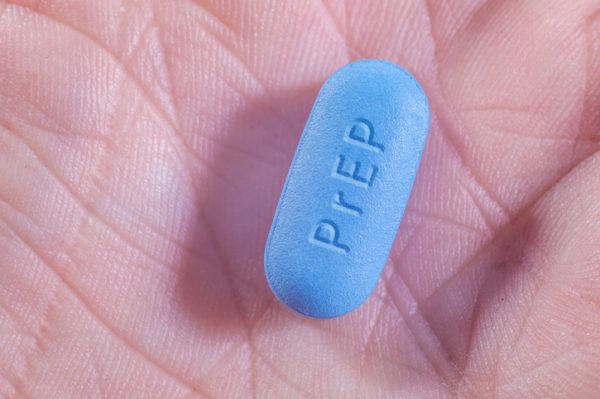
The Food and Drug Administration has approved a second medication designed to prevent people from becoming infected with HIV.
Foster City, California-based Gilead Sciences said Thursday that the FDA had approved Descovy (emtricitabine 200mg, tenofovir alafenamide 25mg) for pre-exposure prophylaxis, or PrEP, among adults and adolescents who are HIV-negative and considered to be at risk for sexually acquired HIV, except for those at risk for contracting it through vaginal sex. An earlier Gilead drug, Truvada (emtricitabine 200mg, tenofovir disoproxil fumarate 300mg), was approved for PrEP in 2012. Descovy was originally approved for treating HIV infection in 2015.

Solera Health’s Playbook To Beat Rising Employer Expenses
Solera Health is working to streamline employer contracting with health tech.
“Descovy for PrEP provides a new HIV prevention option that matches Truvada’s high efficacy with statistically significant improvements in renal and bone safety, which can be an important consideration as people at risk increasingly use PrEP for longer periods of time,” Gilead CEO Daniel O’Day said in a statement.
In an emailed statement, Gilead spokesman Ryan McKeel wrote that Descovy carries the same list price as Truvada, $1,758 per month, noting that the price does not reflect the costs borne by patients or health systems. Teva Pharmaceutical Industries is expected to launch a generic version of Truvada on Sept. 30 of next year, and generic versions of the drug in Europe have already eroded sales, the company said in its first quarter 2019 financial report.
In its annual report for 2018, Gilead reported sales for Truvada of nearly $3 billion, a 4 percent decline from $3.1 billion in 2017, which itself represented a 12 percent decline from $3.6 billion in 2016.
The approval of Descovy for PrEP was based on the Phase III head-to-head DISCOVER trial, which compared Descovy against Truvada among 5,300 cisgender men and transgender women who have sex with men. Results of DISCOVER presented in March showed that Descovy was non-inferior to Truvada on efficacy, but provided lower incidence of reduced bone mineral density and kidney function. The same was true among patients who switched from Truvada to Descovy.

Transforming the OR: CEO Reveals Game-Changing AI Tech for Better Efficiency
How Apella leverages technology to increase OR efficiency.
Despite the safety advantage, Dr. Rachel Scott, scientific director of women’s health research at the MedStar Health Research Institute in Washington, wrote in an email that Truvada is well-tolerated.
“There are concerns for bone and renal toxicity with Truvada, but these are minimal in otherwise healthy individuals using Truvada for PrEP,” Scott wrote. “I think that Truvada will continue to be widely used for PrEP, especially as it soon goes generic.”
Dr. Philip Chan, associate professor of medicine and public health at Brown University in Providence, Rhode Island, expressed excitement at the approval. “PrEP is key in our approach toward ending the HIV epidemic,” he wrote in an email.
At the same time, he wrote that while Descovy appears to have a more favorable side-effect profile and that he was planning to prioritize it for PrEP in the near future, that will depend on whether insurance companies cover it over Truvada. “If insurance companies don’t cover Descovy, we will have limited options given the high cost of these medications,” he wrote.
Meanwhile, San Francisco Department of Public Health clinical research director Dr. Albert Liu wrote in an email that Truvada remains a safe and highly effective PrEP option for men and women.
“This is good news to have another PrEP option for people who have underlying kidney or bone disease,” Liu wrote, referring to Descovy’s approval.
Scott and Chan expressed a desire to see more data for Descovy in cisgender women, as DISCOVER only enrolled cisgender men and transgender women, with Chan pointing to an additional need for data in intravenous drug users.
“The data in women are very limited, as women have been largely excluded from the dosing and efficacy trials,” Scott wrote. “I would like to see more and higher quality pharmacokinetic studies in women.”
Addressing stigma, cost and access issues and other structural barriers to getting and staying on PrEP are needed to have the biggest impact, Liu noted. “We’ve seen lower PrEP use in a number of groups heavily impacted by HIV, including people of color, transgender people, cisgender women and people who inject drugs,” he wrote.
McKeel wrote that Gilead is working to further expand participation in its studies of underrepresented communities, including cisgender women, and that the company plans to conduct a study evaluating Descovy in cisgender women and adolescent girls.
“This is an important population globally, and we are eager to begin the study so that Descovy can be evaluated in this specific population,” he wrote.
Photo: MarcBruxelle, Getty Images






